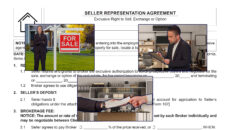Mortgage Concepts is a recurring video series covering best practices and compliance education for California mortgage loan originators. This video helps mortgage loan originators (MLOs) spot and avoid attorney mortgage relief scams. For course credit toward renewing your NMLS license, visit firsttuesday.us.
With a few exceptions, attorneys are not bound by Regulation O in the same way licensed mortgage loan originators are. But this does not mean attorneys can run afoul of Reg O in the MARS rule.
Let’s review a high-profile abuse of Reg O’s attorney exemption so you can spot the warning signs of fraudulent mortgage assistance relief services in your marketplace.
MARS Rule scams
In 2014, the Consumer Financial Protection Bureau (CFPB) took action against three businesses associated with law firms. These businesses had taken advantage of underwater homeowners seeking foreclosure relief. Each was charged with:
- attempting to mask mortgage assistance relief services by using attorneys as a front
- accepting fees before completing loan modification services, totaling over $25 million in unlawful advance fees;
- failing to provide any services toward a loan modification;
- inflating the likelihood of obtaining a loan modification; and
- falsely promising legal advice and representation. [CFPB Press Release. July 23, 2014]
As a result of these enforcement actions, the CFPB released additional warning signs of unlawful mortgage assistance relief services. These include:
- demands for upfront payment — attorneys may ask for payment up front, but only if they are licensed to practice in the consumer’s state, and meet all state requirements for collecting those fees;
- claims that the modification is guaranteed — since a mortgage relief assistance service provider has no way of guaranteeing a mortgage lender will agree to the modification; and
- hard sells — most lawyers won’t solicit consumers directly or push them to pay money up-front.
Mortgage lenders are also taking extra steps to protect consumers from attorneys abusing their Reg O exemption. Lenders now require consumers to sign an authorization form before dealing with any third party handling loan modification negotiations.
The model authorization form released by the CFPB asks the mortgage relief service provider to identify itself and its credentials. The form also reviews the activities the consumer is authorizing the service provider to perform. Most importantly, it informs consumers about potential scams and provides a phone number to report them.
Even if a licensed MLO does not perform or advertise mortgage assistance relief, they may still be held liable for referring consumers to programs known to violate the MARS rule. [12 CFR §1015.6]
Mortgage assistance warning signs
To protect your license, watch out for mortgage assistance relief programs that:
- guarantee to get the consumer a loan modification or stop the foreclosure process;
- tell the consumer not to contact the lender, lawyer or housing counselor;
- claim that all or most of its customers get loan modifications or mortgage relief;
- ask for an upfront fee before providing the consumer with any services (unless it’s a lawyer that has been thoroughly vetted);
- accept payment only by cashier’s check or wire transfer;
- encourage the consumer to lease their home so it can be purchased back over time;
- tell the consumer to make their mortgage payments directly to the service provider, rather than to the lender;
- tell the consumer to transfer the property deed or title to the service provider;
- offer to buy the consumer’s house for cash (often for much lower than comparable sales in their neighborhood); or
- pressure the consumer to sign papers they haven’t had a chance to read thoroughly or that they don’t understand.
Instead of referring a consumer to such a service provider, refer them a credit counselor through the Homeownership Preservation Foundation (HPF), a nonprofit organization that operates the national 24/7 toll-free hotline 1-888-995-HOPE. They provide free, bilingual, personalized assistance to help at-risk homeowners avoid foreclosure.
Related video:














